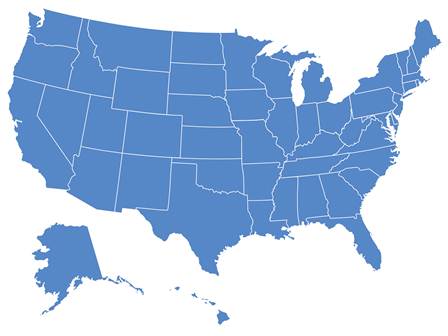CPE Reciprocity
Overview
CPE reciprocity exempts CPAs who hold multiple state licenses from having to meet the individual CPE requirements of each state so long as the licensee meets the CPE requirements of their home state. Because this exemption encourages uniformity while removing unnecessary burdens that do not play a role in protecting the public interest, the AICPA and NASBA are encouraging state boards of accountancy to adopt this provision of the UAA Model Rules.

The successful implementation of individual CPA mobility has allowed many CPAs to give up the holding of multiple reciprocal licenses in various jurisdictions. However, in certain circumstances, a CPA may choose to continue to hold more than one license. For example, a CPA may wish to hold a license in his/her original state of licensure for sentimental reasons or because the CPA plans to return to that state at some point in the future. In another instance, a CPA may work near a border and find it important to hold a license in the CPA’s home state as well as in the state where the firm maintains a second office. Certain jurisdictions (outside the respective state boards of accountancy) require a CPA to have an active in-state license if they are performing certain types of attest work within a particular state (e.g. gaming industry regulations). Yet another example where CPAs may opt to hold two or more licenses is when they are assigned to a limited but multi-year engagement in another state, but know they will eventually return home (e.g. publicly traded companies require partner rotations every five years). For all of these reasons, the UAA Model Rules seek to provide a reasonable accommodation in regard to multiple license holders’ Continuing Professional Education (CPE) requirements across state lines.
According to UAA Model Rule 6-4, all CPAs are required to obtain 120 hours of CPE every three years as a condition of licensure renewal. These hours must include four hours of ethics-specific training and not less than 20 hours of CPE in any given year. However, a CPA is exempt from meeting multiple jurisdictional CPE requirements as long as the licensee meets the CPE requirements of his/her principal or home jurisdiction. Such a rule is a logical and helpful exemption, ensuring CPAs are continuing their CPE while also avoiding complex multi-state compliance regimes. Unfortunately, not every state board of accountancy has adopted this provision, and this can lead to some holders of multiple licenses having to meet multiple state CPE requirements.
UAA Model Rule 6-5 (c)
A non-resident licensee seeking renewal of a certificate in this state shall be determined to have met the CPE requirement (including the requirements of Rule 6-4(a)) of this rule by meeting the CPE requirements for renewal of a certificate in the state in which the licensee’s principal place of business is located.
(1) Non-resident applicants for renewal shall demonstrate compliance with the CPE renewal requirements of the state in which the licensee’s principal place of business is located by signing a statement to that effect on the renewal application of this state.
(2) If a non-resident licensee’s principal place of business state has no CPE requirements for renewal of a certificate, the non-resident licensee must comply with all CPE requirements for renewal of a certificate in this state.
Recent Activity
- March 2016 - Illinois has adopted CPE reciprocity
- December 2015 - Congratulations to the Rhode Island and the U.S. Virgin Islands on adopting CPE reciprocity
